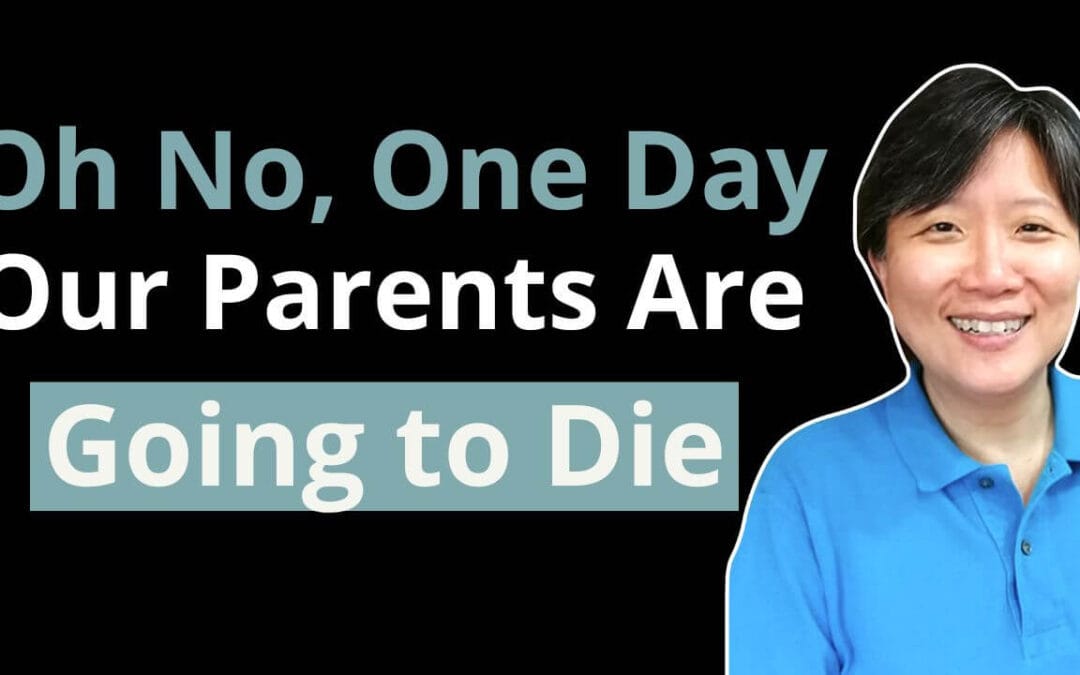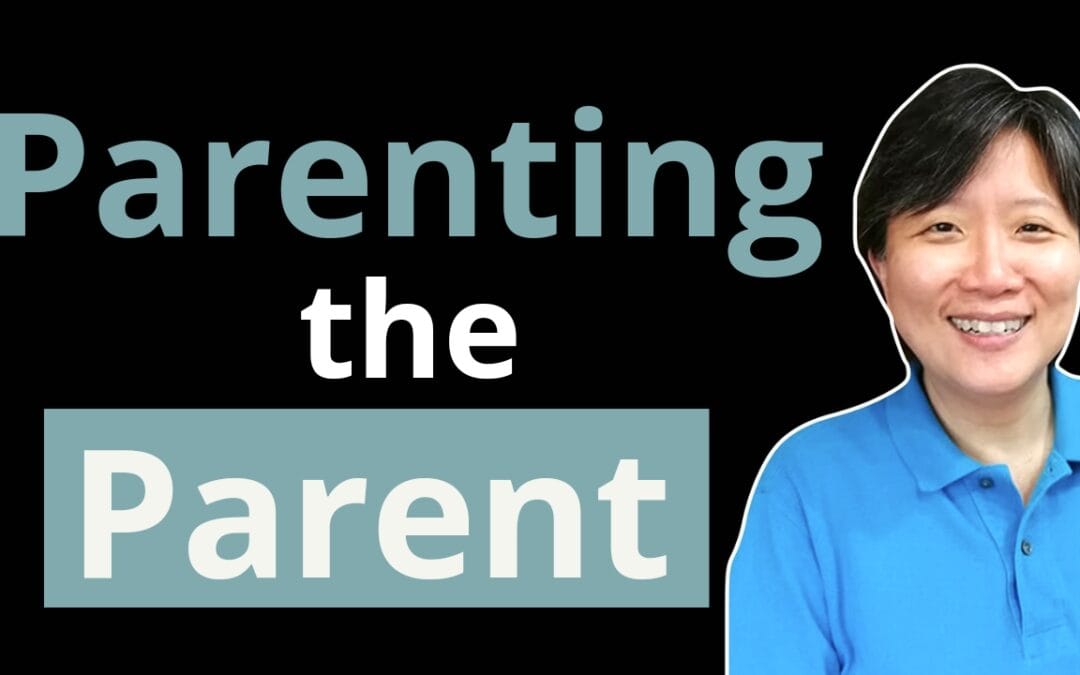In this thought-provoking discussion between Cheryl and esteemed Dhamma Scholar Sis. Sylvia Bay, we explore the vital Dhamma principles that guide us in our relationships with our parents and the deeper aspects of filial duty while staying true to our principles! Highlights include:
🌱 The Buddha’s teachings on honoring our parents and fulfilling our filial duties, both materially and spiritually
🌱 Balancing personal well-being and parental expectations
🌱 Exercising wisdom and setting boundaries in familial relationships
Sylvia Bay has been dedicated to the study and practice of Buddha’s teaching since 1992. She graduated with a B.A. (Hons) First Class, in Buddhist Studies, from the Buddhist and Pali University of Sri Lanka in 2000 and joined the teaching staff of the Buddhist and Pali College (Singapore) in 2001. Since 2002, Sylvia has also been a regular speaker on Buddhist doctrine, Buddhist history, and the practical application of the Buddha’s teachings in daily life, at the invitation of various Buddhist organisations in Singapore. She published her first book in May 2014: the 1st volume of a 2-part series on the life of the Buddha which is titled, “Between The Lines: An Analytical Appreciation of Buddha’s Life”. Volume 2 was launched on Vesak day of year 2015. Sylvia also holds a B.Soc.Sci (Hons) from NUS and a Masters in International Public Policy (M.I.P.P) from School of Advanced International Studies (SAIS), Johns Hopkins.
In the recent episode of Handful of Leaves, host Cheryl engages in a thought-provoking discussion with Sister Sylvia Bay, an esteemed Dharma scholar. Together, they delve into the intricate dynamics of filial duty, exploring how Dhamma principles can guide us in honoring our parents while staying true to our values. The conversation sheds light on the challenges of balancing personal needs and parental expectations, offering invaluable insights for anyone striving to cultivate a harmonious family relationship.
Sister Sylvia highlights that the Buddha emphasized the importance of honoring and fulfilling our duties to our parents. This honour is not simply about meeting material expectations; rather, it involves nurturing a deep understanding of the relationship we share with them. The Buddha outlines key responsibilities for both parents and children, emphasizing the mutual obligations that form the foundation of familial relationships. This guidance encourages children to care for their parents in their old age, acknowledging the sacrifices parents made during their upbringing.
A significant portion of the discussion revolves around the five mental states that children can help their parents cultivate: faith (Saddha), morality (Sila), learning (Suta), generosity (Caga), and wisdom (Panna). Sister Sylvia explains that while we may never fully repay our parents for their care, assisting them in developing these mental states can be seen as a profound way to honor their contributions. By encouraging our parents to engage with Dhamma teachings, we can help them cultivate a spiritual understanding that enriches their lives and ours.
One of the most challenging aspects of filial duty is navigating the balance between personal well-being and parental expectations. Sister Sylvia advises that fulfilling our obligations does not mean sacrificing our own needs or well-being. She emphasizes the importance of fairness and compassion in these interactions, reminding us that it’s essential to communicate openly with our parents about our limitations. Finding a fair compromise is key to maintaining a healthy relationship that honors both our parents and ourselves.
As the conversation draws to a close, Sister Sylvia offers valuable advice for anyone grappling with familial expectations. She encourages us to exercise wisdom and set healthy boundaries in our relationships. This means understanding that while we should care for our parents, we are not obliged to fulfill every demand or desire they may have. Ultimately, cultivating a loving and respectful relationship requires open communication, understanding, and a commitment to personal values.
By reflecting on these teachings and principles, we can nurture our relationships with our parents while honoring our own paths. Remember, the essence of filial duty lies not in blind obedience but in a compassionate and mindful approach to the complexities of family life.
Full Transcript
[00:00:00] Cheryl: Welcome to the Handful of Leaves episode. I am the host Cheryl. The guests I have today is Sister Sylvia, and she’s an experienced Dharma speaker, practitioner and scholar. She has a lot of experience in Dharma practice. So I’m very excited to invite her. Welcome Sister Sylvia.
[00:00:15] Sis. Sylvia Bay: Hello.
[00:00:17] Cheryl: Part one, the episode explores Dhamma principles filial Buddhists must know. We want to learn a little bit more about attachment and parent-child love, and acknowledge the difficulties of caretaking and part two, we will be approaching the topic of sickness and mortality. So, Sister Sylvia, do you have any guiding principles to share with us about how we can truly honor our parents and fulfill our duties to them?
[00:00:45] Sis. Sylvia Bay: In various suttas, the Buddha had given advice to various lay people about how to look after parents or what can they can do for their parents. I think I’ll focus on two sets, two different types.
It’s in the Anguttara Nikaya, Book of Twos. There are two people in the world that you can never repay. Even if you were to carry your father on the right shoulder, mother on the left shoulder, you wash their feet every night. You do all kinds of things. You can’t repay them. However, if you were able to help your parents develop five mental states, when they don’t have those mental states and you help them to cultivate those, then you have more than repaid them. And these five mental states are faith, helping them to cultivate faith, confidence in the Buddha, Dhamma, and the Sangha. The word is Saddha.
The idea here is if our parents have no spirituality, very materially driven, very caught up in the secular world, but we are able to help bring them into the Dhamma, this would count as us helping them cultivate Saddha. So if, for instance, we bring our parents where we go for our monastery service. We go pay respect, we go pray, we go and help them link up with monks. We get them interested in the Dhamma. That kind of work, that sort of activities will count as helping our parents develop faith.
The second mental state is Sila, morality. Minimally, we must help our parents to understand why and how to observe the precepts just in small measures. Some parents they are not able to really understand what do you mean by no telling lies, they may say something like this. We try our best, we just try our best. We try our best by not killing, not taking things not given to you. And as you explain the precepts and every little thing that they do right you must applaud so you can encourage them. Get them to recognize that what you’re trying to help them do is don’t hurt anyone. Don’t hurt other beings. So you’re protecting the staining of their minds.
So that’s the second one.
The third one is to get them interested in the Dhamma. So they call Suta. Suta is essentially understanding, learning the Dhamma. Get them interested.
My advice to people who are keen to help their parents is to learn Dhammapada verses. Tell stories. Stories people like to hear. Your parents read to you storybooks at night to help you go to bed. Now you read to them Dhammapada verses and tell them Dhammapada stories to get them happy and enjoy and laugh. And the story hopefully will sink in a takeaway, a moral takeaway. So you just help them. You plant Dhamma seeds for them.
The fourth is to get them to become more generous. More giving, more forgiving, more loving. Generosity is not just about giving money. It’s about forgiveness. It’s about letting go of unwholesome mental states. Help them with that.
And then if you can, eventually, it’s growing Panna right? The fifth one is helping them to become wiser. Focus on talks of mortality.
You don’t have to like in your face, daddy, mommy, you’re going to die. No, you don’t have to do that. You can be more philosophical. Life is really short. 80 years and it’s all over. You’re reflecting on your own. 30 years later, I’m all grown up. I have a kid. We’ve come such a long way. And before we know it, we’re all gone. Something like that, you know? So, more generic, but nonetheless dripping into their mind mortality in very slow ways.
Why do you want to periodically reflect on mortality? It’s part of the practice. If you can have mortality as part of your general awareness, you become more forgiving. You have a deeper sense of urgency about doing good, avoiding evil, that kind. That’s one set of guidance given by the Buddha.
I found that very useful. In my engagement with my mother, my father has passed on it’s only my mother. In this very simple, slow way, she’s gotten very good at accepting the impermanence of life. She’s very good at that. And she will say things like, Oh, we’re all still alive we must do good. Let’s do the right thing. Help people, help people. Little things like that. Simple, simple English, but very powerful.
Another set, which was actually taught by the Buddha in Sigālovāda Sutta. His advice to Sigala. Sigala was this young man who was told by his father to go and bow in six directions in a space where the father knew, the Buddha would come by for his alms round.
So he sent him there. And the Buddha saw this young man bowing in six directions and asked him, what are you doing? Then his young man said, Oh, my late father told me to do this, to pay respect to Six Directions. The Buddha said this is not how you do it.
The Six Directions refers to six sets of relationships. But here I’m going to talk about specifically that between parents and children. The Buddha indicated very clearly that the parents must help the child to develop right values. Teach them to know right from wrong. So guide them on moral values. Help them to earn a living. So must provide for them to be able to learn. So that they can go and earn a living. Then in the ancient time, there are little things like, parents are obligated to help arrange marriages for the children, because that’s ancient India, where young people do not have opportunity to meet.
So the Buddha is basically saying, you need to let your child go, and help your child form his family, or her family. So little things like that are very cute. So from the parent to the children, as you can see very clearly. They’re obliged to help them form a family, earn a living, know right from wrong. That’s broadly what the parents should do.
For the child to the parent, to look after them in their old age. They have looked after you when you were young. Now you should look after them when they are old. It is supporting them, looking out for them, doing their duties for them, helping to carry their burden in other words. And when they have moved on, the Buddha says the child should do some form of ancestor worshipping to basically share merits with them. How do you ensure a good relationship? It is when the individual do what is necessary to look after another. So the parent look after you by helping you gain the ability to look after yourself.
You look after your parents by watching out for them when they are no longer able. So what does this mean, right? In real sense, in our world?
In our world, whether or not your parents need it, because these days, parents are very rich, yeah? They have their own means. But whether or not they need it, just give them some financial token and make them feel good. Hey, my child loves me. It makes them feel good about themselves. And do their duty for them. They may not ask you to, but you will want to. So basically you’re saying, I’ve grown up. It’s my turn to now carry this family.
What else? He said that when you earn well, as a lay person, you earn well, spend it, spend on yourself, spend on your parents, spend on your loved ones.
This thing about spending on your parents, it comes up again and again. One of the causes, he said, for downfall, one of the conditions for downfall is you have the means and you don’t look after your parents. So this notion that a child has financial obligation to parents comes out again and again as a point that he makes. A condition, and I repeat, one of the conditions for downfall is a child has means but does not look after his parents.
[00:09:32] Cheryl: What you share really makes me salute the Buddha even more again, because he covers the material bases, the duties, the physical pains and needs that we need to take care. And also he covers the mental states of the five qualities that you shared with us.
So he really cover all grounds.
Right now current context , it’s common sentiment where parents say, Hey, you must be grateful. I raised you up, did this for you. And it’s something that all Asian parents say. But how can individuals then differentiate between sacrificing personal needs and repaying our debts? So one example could be because you use financial, right? Some parents would say, Hey, you must give me X amount every month. But what if the person is struggling with their own financial responsibilities?
[00:10:18] Sis. Sylvia Bay: I will bring you back to what I said about the parents obligation to children and the children’s obligation to parents, and they are made for harmony. And society being able to thrive. He said, parents must teach the children right from wrong. So moral values. And must equip them with the means to earn a living.
So teach them how to earn a living Nowhere did he say parents are entitled to a sum of money, okay?
Buddha never said that. Buddha stresses as a parent, what are your obligations, and as a child, what is your obligation on the basis of gratitude. That is true. But this gratitude doesn’t carry a fixed figure.
Dealing with how much to give parents and how to balance, it’s not about a child’s duty, it’s about human, human balance.
In my view, what is fair? Of course these are all subjective. I like that the Buddha always use this words. If you are a practitioner, you will choose a course of action that will not be censured by the wise. He always puts it like that. Meaning when you pick a course of action, whether or not that course of action is right or wrong, it helps sometimes to think about what a wise man would say. But I’m not wise, so I wouldn’t know.
What it means by a wise man, is someone who is fair. Someone who is fair, someone with very low degree of greed, anger, delusion. A wise person will not have very strong lusts, desires, uncontrollable, unquenchable. A wise person won’t have that problem. If they have that problem, you will not call him wise. A wise person will not have uncontrollable anger. No such thing as anger management issues. And a wise person understands mortality. When we use the word mortality in this case, means this person knows how to take a step back and say, don’t be so petty. We all die. It’s just someone who is more balanced, a bit more equanimous, not easily aroused.
That’s a wise person. The wise person is a fair person. A wise person will be able to say that what kind of a choice is going to lead to a win-win for people, is going to lead to a healthier relationship. Okay. So a course of action chosen such that the wise man will not censure you.
That’s your benchmark.
So you, with your limited means, wanting to support your parents who have unreasonable demands. Perfectly okay for you to say, Hey, daddy, mommy, please it’s hard for me. How about this amount? And in your mind is a fair amount and then that’s it .No need to quibble over the dollars and cents because you work out the sums you say you work out the sums and there’s a sense of fairness. It’s correct balance because the balance can tweak here and there. Reasonable people looking at it will say it’s reasonable.
I know these are all very subjective, it’s very hard. But the point I’m making is, it doesn’t mean meeting their every desire means being filial. Or not meeting every desire means being unfilial. It doesn’t mean that way. There’s some, some sense of balance and fairness, fair play,
[00:14:10] Cheryl: That is very important,. And I just want to reiterate again, meeting every desire is not filial piety and vice versa, not meeting their every desire…
[00:14:20] Sis. Sylvia Bay: Doesn’t mean you’re being unfilial.
[00:14:22] Cheryl: Yeah. Because the example I gave just now was a very, material one, but a lot of times, a lot of their desires can project into big decisions, right? Like who you marry, your life choices
[00:14:35] Sis. Sylvia Bay: I will not say that if you disappoint your parents, you’re being unfilial. I will not say that. We all have lobha (greed), dosa (anger), moha (delusion / ignorance) whatever you call it. Okay. We all have that. And your parents are no different. They may
precede you in terms of when they were born and it’s from their body that was the condition for your arising. And you are therefore grateful to them for having been the conditions that give you life. You’re grateful that they look out for you, look after you as such that you now grow up. You’re grateful for that.
But that doesn’t mean that my job is to fulfill your every desire. That’s not even stated in Sigālovāda Sutta. You wouldn’t ever say that.
He said, carry the burden when they are old and they’re not able. Looking after them, providing for them, their comfort and their needs, supporting them financially.
Then when they are gone to share merits, to still look out for them. Because you believe. If you don’t believe, then so be it, but you believe. You believe that there are other lives. So because there are other lives, you also want to look out for them, just as they look out for you, you want to look out for them. But nowhere is it said that a child should unquestioningly fulfill their parents’ every desire.
I can understand that when parents have very strong desires, which sometimes may be to the detriment of the individual. The individual feels this pressure to comply.
I’ll just give you one example. Your parents run a butchery. You are a Buddhist. Your parents say you must take over the family business and you say, I’m not killing and they said, no, you are unfilial. And then you do it because you want to adhere to their desires.
You should never comply with a demand that breaks precepts. That’s rule number one. You should never comply with a demand or an insistence that lead to you feeling conscious stricken. Your parents say you must divorce this woman, or you must not go with this woman, but you’re already married, something like that, because they don’t like her. Why you don’t like her? Because she comes from a poor family. Your parents say you must abort the child. No way! Precepts! If it causes you angst, because it seems wrong by your precepts, by your conscience, by the law, then you, no lah! No way am I going to comply.
Yeah, your job will be to like 回头是岸 (turn your head to see the shore), you must turn back. I really don’t see it as straightforward.
[00:17:47] Cheryl: Yeah. I think familial relationships are the toughest to navigate because precisely there are so many grey areas. But having that firm stance on never complying to breaking our precepts.
[00:17:59] Sis. Sylvia Bay: Correct. I will also add that when people make demands on you, and it’s not just parents, your boss comes along, your spouse, your children, people coming along, making demands on you, you must also filter it through your Hiri & Ottappa, your conscience and your respect with regard for the law. It needs to be filtered through there.
Exercise some wisdom. We look after people and look out for them, make sure they are okay. It doesn’t imply obedience. In fact, no way did the Buddhists say anything about obedience
[00:18:44] Cheryl: well, later everyone listen, then everyone rebel against their parents.
[00:18:49] Sis. Sylvia Bay: If you are using what I have said, as justification for turning your back on your parents, then again, that’s not right. I am not advocating that you should not comply, or you should be disobedient. I’m saying that you must exercise wisdom and judgment, and this wisdom and judgment must sit on a sense of gratitude, one. Two, fair play, fairness.
And this fairness is important because our parents also, like us, have all kinds of defilements. You will find if your parents are really practitioner, really good people, your parents will have no demands on you. They will say things like my child is work very hard. I really don’t want to make life difficult for him. And then your parents have gone the other way. Then you better go and disturb them. You’re going to look after them, like check out on them.
I feel, very often, one way to help yourself with this is, if you are motivated by love, compassion, gratitude, then what you do will always feel good. I’m doing this because I love you. I’m doing this because I’m so grateful. I care for you. When it’s motivated like this, you will feel good. When you feel yourself torn by indecision, the odds are there’s a whole bunch of akusala going on, and a whole bunch of unwholesomeness. Either it infringes on your conscience, infringes on your sense of fair play.
It’s all these unwholesome mental states will arise for sure. Then some way there will be desires, desires, greed, greed. There will be that. In which case, the decision point is not so straightforward, you need to talk it through. In fact, go find a monk that you respect for his wisdom or a nun or even if it’s a lay person, an uncle, mentor, whatever, someone you respect to be wise and go and have that conversation.
[00:20:58] Cheryl: And wise man, just to clarify, it doesn’t have to be an Ariya or is it like someone who’s a stream enterer and above?
[00:21:04] Sis. Sylvia Bay: No need, no need, no need. A wise man is someone who in his advice will lead you to think about what sort of conditions will lead to win-win, what sort of conditions will lead to peace, harmony, beneficial for you, for me, that balance. How do you hit a sweet spot where you minimize anger, agitation, it increases a wholesome outcome. Sometimes, he may not say to do it, but he may lead you to finally conclude, I need to walk away.
And what did the Buddha say in the first line of the Mangala Sutta? Asevanā ca bālānaṁ. Do not associate with the fool. That’s the first line. That’s important because sometimes you conclude so and so, it’s really very unwise because there’s so much lobha, dosa, moha. It’s very unwise. I will not hang around too much.
[00:22:07] Cheryl: That points back to drawing our own boundaries because we also have to take care of ourselves.
[00:22:12] Sis. Sylvia Bay: Correct. Yes. Your first obligation is to make sure this mind doesn’t go crazy. If this mind goes crazy, you’ll help nobody.
[00:22:23] Cheryl: And I think we have covered a lot in this wonderful episode from the two ways to reflect on our duties to our parents and then really talking about. How we can skillfully talk to our parents about death, mortality, and that really is about getting them to open up and then sharing certain facts about death.
And so with that, we come to the end of the episode. Thank you for staying all the way to the end. And please give us a like on YouTube and share with your friends. And yeah as usual, stay happy and wise, and we’ll see you in the next episode.
Thank you. Thank you.
Buddhist Youth Network, Lim Soon Kiat, Alvin Chan, Tan Key Seng, Soh Hwee Hoon, Geraldine Tay, Venerable You Guang, Wilson Ng, Diga, Joyce, Tan Jia Yee, Joanne, Suñña, Shuo Mei, Arif, Bernice, Wee Teck, Andrew Yam, Kan Rong Hui, Wei Li Quek, Shirley Shen, Ezra, Joanne Chan, Hsien Li Siaw, Gillian Ang, Wang Shiow Mei, Ong Chye Chye, Melvin, Yoke Kuen













